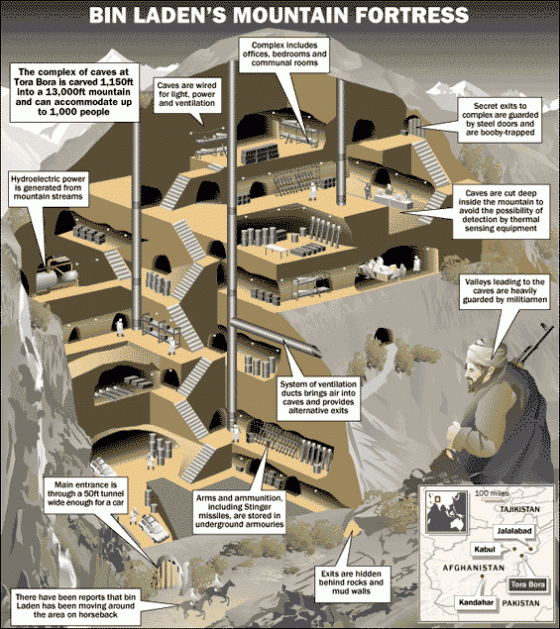Does this count as a moment in the Arab Spring ? What is certain is a single event can trigger the release of volumes of bitter resentment . . . .
2 U.S. Officers Slain; Advisers to Exit Kabul Ministries
By GRAHAM BOWLEY and ALISSA J. RUBIN
KABUL, Afghanistan — Two American officers were shot dead inside the Interior Ministry building here on Saturday, and NATO responded by immediately pulling all military advisers out of Afghan ministries in Kabul, in a deepening of the crisis over the American military’s burning of Korans at a NATO army base.
The order by the NATO commander, Gen. John R. Allen, came on the fifth day of virulent anti-American demonstrations across the country, and it was a clear sign of concern that the fury had reached deeply into even the Afghan security forces and ministries working most closely with the coalition.
Although there was no official statement that the gunman was an Afghan, in an e-mail sent to Western officials here from NATO headquarters the episode was described as “green on blue,” which is the military term used here when Afghan security forces turn their weapons on their Western military allies.
The killings, which happened within one of the most tightly secured areas of the ministry, add to the drumbeat of concern about a deepening animosity between civilians and militaries on both sides that had led to American and coalition forces being killed in increasing numbers even before the Koran burning ignited nationwide rioting. And the pullout from the Afghan ministries suddenly called into question the coalition’s entire strategy of joint operations with Afghan forces across the country, although General Allen said NATO was still committed to fighting the war in Afghanistan.
“I condemn today’s attack at the Afghan Ministry of Interior that killed two of our coalition officers,” General Allen said in a statement. The military had not yet found the person who carried out the shooting, he said, adding: “The perpetrator of this attack is a coward whose actions will not go unanswered. We are committed to our partnership with the government of Afghanistan to reach our common goal of a peaceful, stable and secure Afghanistan in the near future.”
The killings on Saturday are only the latest chapter in the deteriorating relations between the Afghans and NATO, including an Afghan soldier’s recent killing of French troops that prompted the French to move up their withdrawal date, and outrage over a video that showed four American Marines urinating on bodies said to be those of Taliban fighters.
The Koran burning, however, has taken the animosity to a new level, eroding further the already attenuated trust between the Afghans and Americans. On Thursday, two American soldiers were shot to death by a member of the Afghan Army at a base in eastern Afghanistan, as protests about the Koran burning were raging outside the base.
http://www.nytimes.com/2012/02/26/wo...ef=global-home
2 U.S. Officers Slain; Advisers to Exit Kabul Ministries
By GRAHAM BOWLEY and ALISSA J. RUBIN
KABUL, Afghanistan — Two American officers were shot dead inside the Interior Ministry building here on Saturday, and NATO responded by immediately pulling all military advisers out of Afghan ministries in Kabul, in a deepening of the crisis over the American military’s burning of Korans at a NATO army base.
The order by the NATO commander, Gen. John R. Allen, came on the fifth day of virulent anti-American demonstrations across the country, and it was a clear sign of concern that the fury had reached deeply into even the Afghan security forces and ministries working most closely with the coalition.
Although there was no official statement that the gunman was an Afghan, in an e-mail sent to Western officials here from NATO headquarters the episode was described as “green on blue,” which is the military term used here when Afghan security forces turn their weapons on their Western military allies.
The killings, which happened within one of the most tightly secured areas of the ministry, add to the drumbeat of concern about a deepening animosity between civilians and militaries on both sides that had led to American and coalition forces being killed in increasing numbers even before the Koran burning ignited nationwide rioting. And the pullout from the Afghan ministries suddenly called into question the coalition’s entire strategy of joint operations with Afghan forces across the country, although General Allen said NATO was still committed to fighting the war in Afghanistan.
“I condemn today’s attack at the Afghan Ministry of Interior that killed two of our coalition officers,” General Allen said in a statement. The military had not yet found the person who carried out the shooting, he said, adding: “The perpetrator of this attack is a coward whose actions will not go unanswered. We are committed to our partnership with the government of Afghanistan to reach our common goal of a peaceful, stable and secure Afghanistan in the near future.”
The killings on Saturday are only the latest chapter in the deteriorating relations between the Afghans and NATO, including an Afghan soldier’s recent killing of French troops that prompted the French to move up their withdrawal date, and outrage over a video that showed four American Marines urinating on bodies said to be those of Taliban fighters.
The Koran burning, however, has taken the animosity to a new level, eroding further the already attenuated trust between the Afghans and Americans. On Thursday, two American soldiers were shot to death by a member of the Afghan Army at a base in eastern Afghanistan, as protests about the Koran burning were raging outside the base.
http://www.nytimes.com/2012/02/26/wo...ef=global-home





Comment